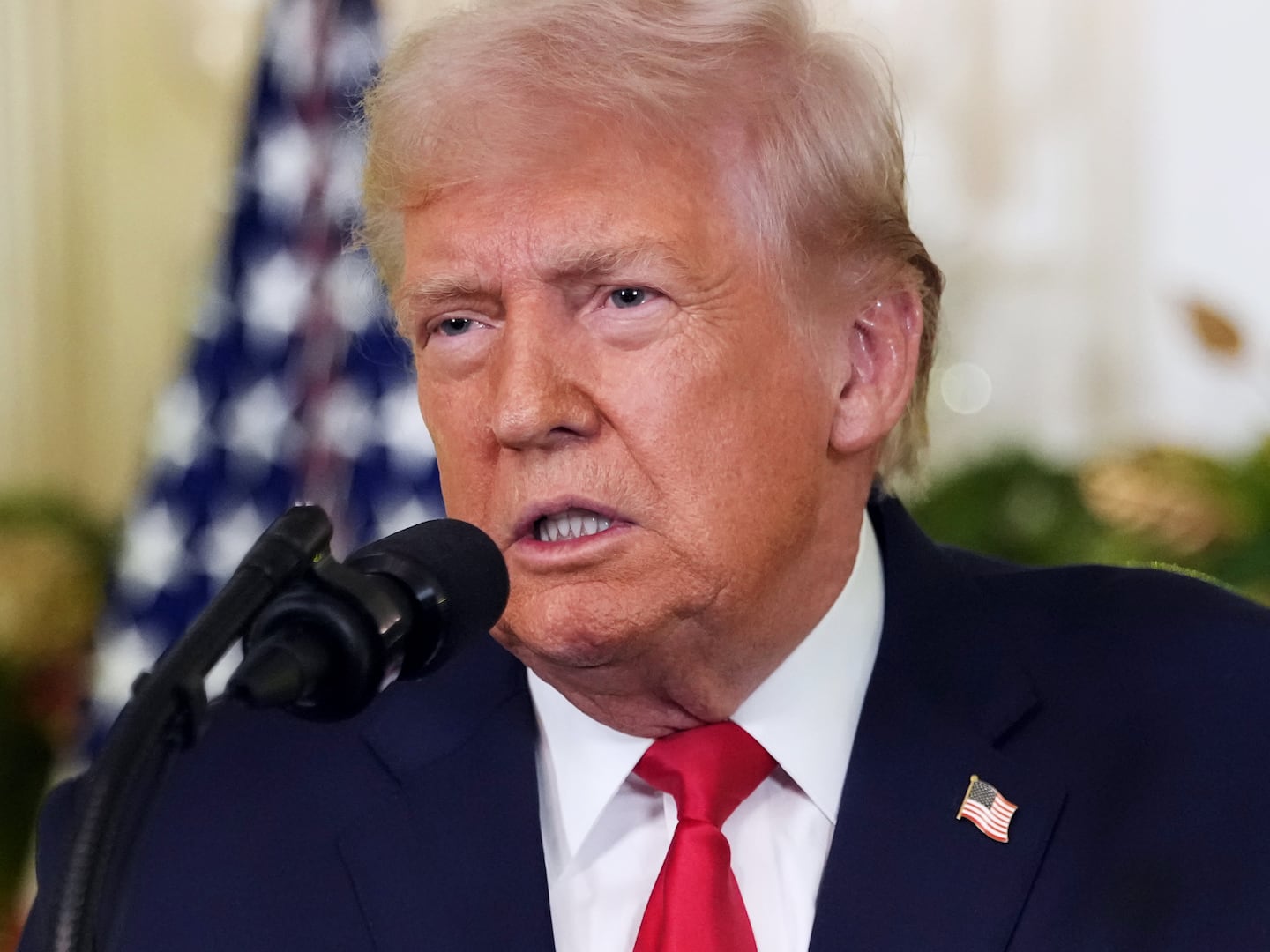Between survivors’ accounts, photographs of the dead—men, women and children, wrapped in white sheets—and videos showing nerve-gas victims struggling for life, there’s no real question that chemical weapons were used in Syria. And if the available evidence is any indication, Bashar al-Assad’s regime is responsible. U.S. intelligence reports not only that the were rockets launched from government-held territory into rebel-occupied areas, but that intercepted post-attack phone calls show chatter between Syrian officials and a chemical-weapons unit.

Obviously, this doesn’t mean much to the Assad regime and Russia, who have a vested interest in disputing the claim that chemical weapons were used against civilians. But, strangely, it’s also suspect—or even irrelevant—to outside observers in the United States, who also challenge the idea of Assad’s involvement. For them, it just doesn’t make sense that Assad would use these weapons against his own people. What’s the strategic benefit? What does he gain from turning the international community against his regime and inviting military retaliation?
Unable to answer these questions, commentators like former Richard Nixon speechwriter Pat Buchanan and Lawrence Wilkerson, former chief of staff to Colin Powell, have dipped into the world of conspiracy theories. “This thing reeks of a false-flag operation,” said Buchanan, referring to an operation conducted under false pretenses to discredit an opponent. “I would not understand or comprehend that Bashar al-Assad—no matter how bad a man he may be—would be so stupid as to order a chemical-weapons attack on civilians in his own country, when the immediate consequences of which might be that he would be at war with the United States.” Likewise, in an interview, Wilkerson said the chemical-weapons attack was a “false flag” carried out by Israel for, it seems, no particular reason at all. “I think we’ve got a basically geostrategically, geopolitical inept regime in Tel Aviv right now,” he said, when asked why Israel would take this route.
These two aren’t the only ones to entertain the idea that this was a false flag. The far right has been abuzz with speculation. On Neil Cavuto’s Fox News show, former congressman and presidential candidate Ron Paul asserted that the sarin gas attack happened under false pretenses. “I think it’s a false flag,” he said, disputing the idea that “thousands” were killed with chemical weapons. “I think really, indeed, and nobody knows if indeed he was slaughtering people by the thousands with poisoned gas, you know, that’s another story, but that’s not the case.” Right-wing provocateur Rush Limbaugh has talked up the story of Yossef Bodansky, a defense analyst who argues that President Obama was behind the use of chemical weapons—in order to justify an attack on the Syrian government and aid the opposition. And on his website, conspiracy-monger Alex Jones has pushed the idea that these attacks were launched by the rebels, a false-flag attack in an ongoing “proxy war” between Russia and the United States, calling it a “build-up to a World War 3 scenario.”
Kentucky Sen. Rand Paul isn’t as willing as the above to entertain the idea that these attacks were a false flag, but he did wonder if the rebels weren’t responsible, asserting that “questions” remained as to who used chemical weapons. “There is a great incentive for this to actually have been launched by rebels, not the Syrian Army,” he said just over a week ago.
Yes, there’s no hard confirmation that Assad gave the order to use sarin gas against civilians. Still, each of these theories is easily debunked with the available evidence. The United States, for instance, isn’t alone in its conclusions: France, Germany, and the Arab League also agree that Assad’s regime was behind the attack. Indeed, to believe that the rebels are responsible is to ignore the extent to which the Syrian military possesses the materials for chemical weapons, to say nothing of the logistical complexity of setting up the attack and a subsequent cover-up. As for the idea that President Obama is behind the attacks? The only thing I have for you is common sense. In order to pull off a conspiracy of that size, Obama would have to have the absolute loyalty and cooperation of hundreds—if not thousands—of people. He would also have to be an evil genius on par with some of the worst people in history. Even his most devoted opponents can agree that this is wildly implausible—the stuff of Alan Pakula political thrillers, not reality.
But conspiracy theories have never been about plausibility. More than anything, they reflect our uneasiness with the modern world, its complexity, and often its capriciousness. And at times, they’re a natural consequence of past actions. Given the circumstances of the war in Iraq—where high-level officials, up to and including the president, misled the public—it’s not a surprise that some people are paranoid about the situation in Syria.
Still, for any given situation, the best we can do is evaluate the evidence we have and press for more. And right now, what we can see is that chemical weapons were used in Syria to kill a lot of people, and Bashar al-Assad’s regime—if not Assad himself—is responsible.





